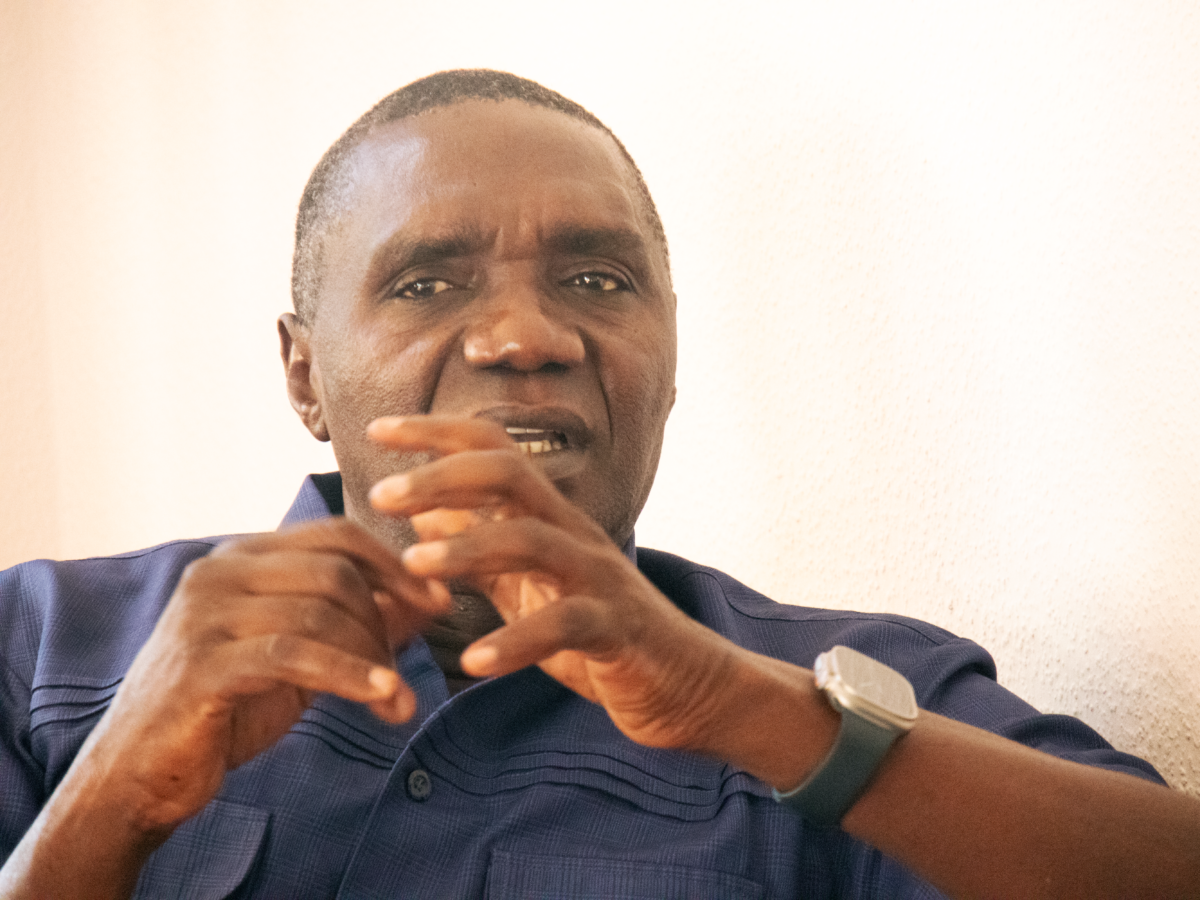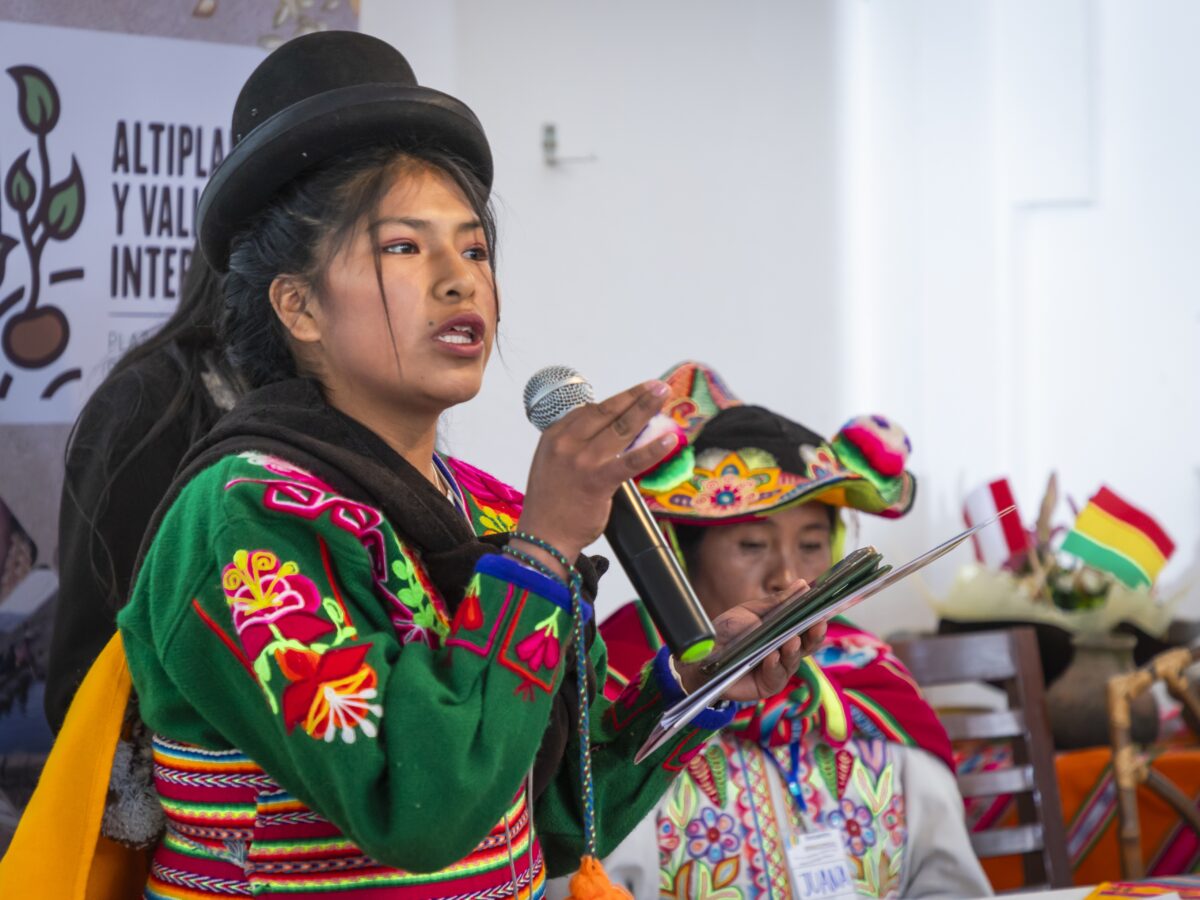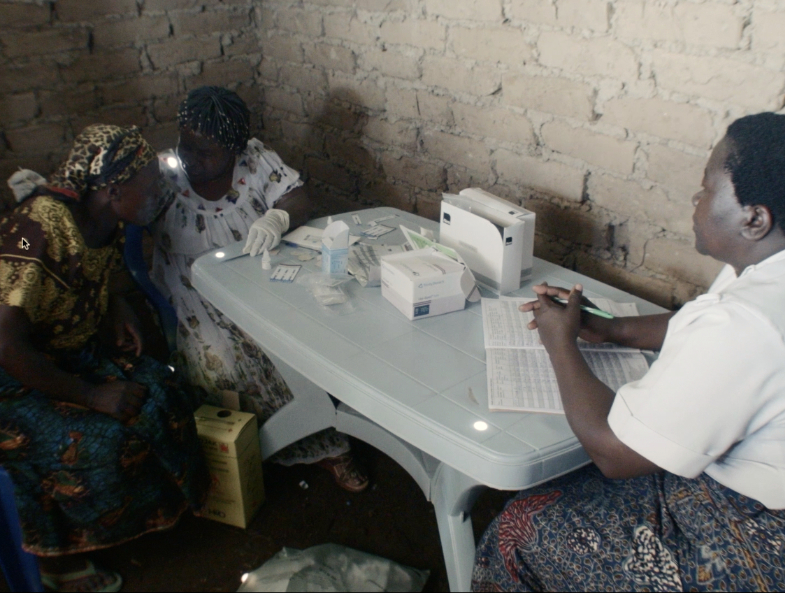The Catholic priest and philosopher James Oyet Latansio has long been committed to peace in South Sudan - also on behalf of Mission 21. In this interview, he talks about his own experiences of conflict and explains why you can't just rely on God to promote peace.
Peace in South Sudan is fragile. Ethnic conflicts and violence characterize the lives of the South Sudanese population despite the peace agreement signed in 2018. The people of South Sudan suffer under the authoritarian government and the country is plagued by floods and droughts. This has been compounded by the effects of the war in neighboring Sudan since 2023.
The former Secretary General of the Federation of South Sudanese Churches, James Oyet Latansio, has been working in peacebuilding for a long time. He does not want to give up his commitment - even if he sometimes has doubts about his work.
Father James, you are on your way to Rome and want to promote the peace process in South Sudan with the Community of Sant'Egidio. What are your concrete plans?
In 2018, we signed a peace agreement in South Sudan. However, there were some groups of people and parties who did not want to sign this agreement. They are referred to as "holdout groups" who are currently in Kenya.
Together with the Community of Sant'Egidio, we now want to help mediate in Kenya so that a dialog between the government and the holdout groups. can arise. Because where will peace come from? I don't believe that peace will come from heaven. God uses the people who are here on earth.
It is impressive how intensively and for how long you have been working for peace. Do you ever get tired?
I have been working on building peace for a long time. Sometimes I ask myself: What's the problem? Am I doing it right? Am I on the right path?
But I'm not giving up on the work. I think of children and mothers in the floods, of displaced people. They should be able to return and live in peace, to work in their gardens. That is what we are working on with Mission 21.
I want to think positively despite the challenges. Because if you give up, where will you go?

Father James doesn't just talk about conflicts in theory. He himself and his family have experienced flight and violence in South Sudan. Photo: Mission 21
What experiences of conflict have you had in your own life?
I was born in what is now South Sudan, grew up there and had to flee several times in search of safety. A landmine planted by a young man should have killed me. But it only destroyed my left leg. The man who had planted the explosive device came to my hospital bed and asked me for forgiveness. At first I was trapped in bitterness. But then I thought: if I stay in this bitterness, I will not have peace with myself. I forgave the man.
My family's life is also marked by conflict. My mother, some of my sisters and aunts were raped. They are traumatized.
In this context, I can imagine that it is very difficult to forgive - but that is precisely what should happen in order to create peace. How do you do that, to not always be reminded of the past in the case of traumatic experiences?
In South Sudan, there is still a cultural taboo surrounding gender-based violence. Women who have been raped are ostracized. That's why it's important to talk about it. We encourage women to speak out about their trauma so that they can be helped to free themselves and find peace. But we also have to deal with the perpetrators. Perpetrators of violence can also experience trauma. And we need to reach out to these people too.
Father James OyetThere is still a cultural taboo around gender-based violence in South Sudan.
Where is South Sudan heading?
After the 2024 elections were postponed, they were supposed to take place in two years' time. Then the people should be able to elect their own government democratically. That is what we hope and pray for.
The interview was conducted by Emilie Buri.







